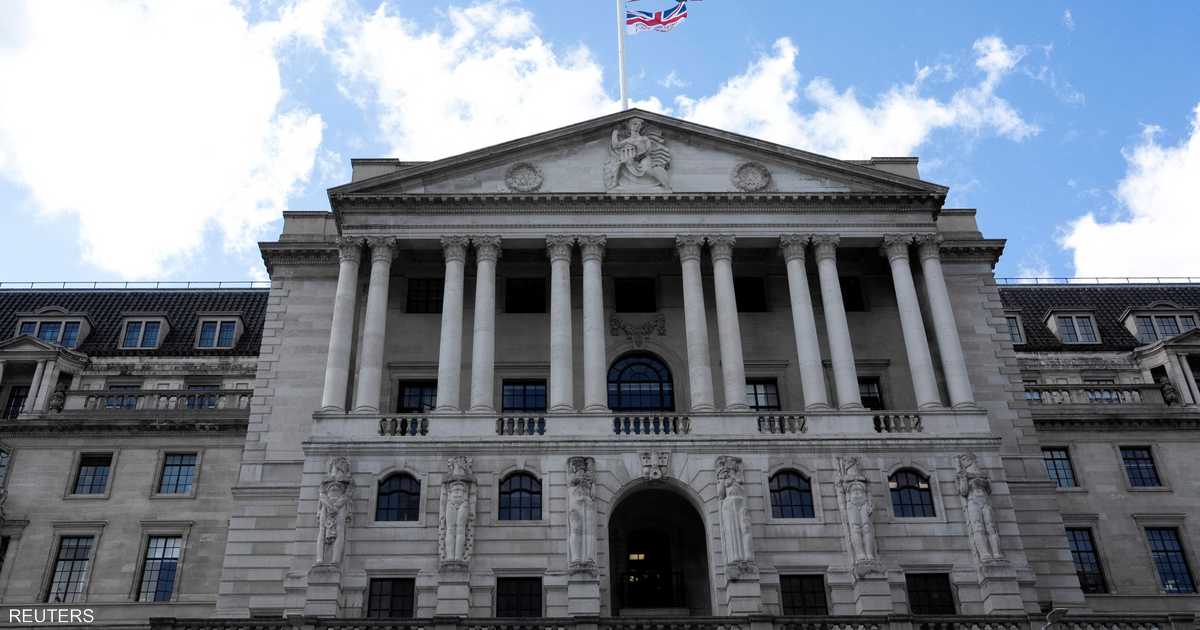The United Kingdom faces mounting economic challenges as its public debt reaches $3.9 trillion, placing severe strain on national finances and growth prospects. Over the past five years, more than 100,000 companies have declared bankruptcy, while 150 international partners have withdrawn from the London Stock Exchange since the beginning of 2024, indicating a growing erosion of confidence in the UK’s financial markets. n nThe luxury real estate sector has recorded its weakest performance in a decade, and the economic burden of youth mental and physical health issues is estimated at $445 billion annually. These figures point to deeper structural weaknesses beyond mere fiscal indicators. n nDr. Basem Hassad, an international consultant for the United Nations Development Programme, explained on Sky News Arabia’s “Business with Loubna” that these issues stem from the UK’s historical economic model, which long relied on colonial legacies and geopolitical influence to sustain economic power. However, Brexit and the country’s declining global role have disrupted this balance. n nCurrent data reveals a gradual economic deterioration: unemployment stands at 4.9 percent, economic growth is nearly stagnant, and critically, labor force participation has sharply declined. Around 21 percent of Britons aged 16 to 64—approximately 15 million people—are neither employed nor seeking work. This inactive population places a heavy burden on public services without contributing to economic output. n nThis trend coincides with a surge in medical leave claims and chronic conditions such as diabetes, hypertension, and neurological disorders. Dr. Hassad described the situation as “alarming,” warning it threatens not only economic expansion but also the long-term viability of the UK’s healthcare system, turning health into a cost center without productivity returns. n nIn light of this crisis, Dr. Hassad compared the current state to the 1929 economic collapse, which prompted John Maynard Keynes to advocate for direct government intervention. He stressed that the UK now requires a similar Keynesian-style stimulus to revive economic activity and restore equilibrium, even if it contradicts decades of free-market orthodoxy. n nThe implications extend beyond British borders. Due to deep economic integration, Europe will feel the ripple effects, and Arab economies linked to the EU will also be affected. Dr. Hassad urged Arab nations to pursue greater economic independence through food self-sufficiency, defense autonomy, and sovereignty in energy and pharmaceuticals. He emphasized that the next decade will be crucial in determining whether Arab economies can withstand such external shocks. n
— News Original —n3.9 تريليون دولار دين عام ينهك بريطانيا ويبتلع اقتصادهاnإلى جانب ذلك، أعلن أكثر من 100 ألف شركة إفلاس خلال خمس سنوات، فيما انسحب 150 شريكًا من بورصة لندن منذ مطلع 2024، وهو ما يعكس فقدان الثقة بالأسواق البريطانية. أما قطاع العقارات الفاخرة، فقد سجل أسوأ أداء له منذ عشر سنوات، بينما تقدر تكلفة المشاكل الصحية والنفسية للعمال الشباب بنحو 445 مليار دولار سنويًا. n nالأزمة ليست محصورة في الاقتصاد الداخلي فقط، بل انعكست أيضًا في هجرة الثروات، إذ غادر بريطانيا نحو 47 ألف مليونير منذ البريكست، بمتوسط 14 مليونير يوميًا، في مؤشر صريح على فقدان الجاذبية الاستثمارية. n nجذور الأزمة أعمق من الأرقام n nأوضح الاستشاري الدولي لبرنامج الأمم المتحدة الإنمائي د. باسم حشاد خلال حديثه الى برنامج بزنس مع لبنى على سكاي نيوز عربية ” أن هذه التحديات ليست مستجدة، بل تعود جذورها إلى “البنية الخاصة بالاقتصاد البريطاني” المرتبطة تاريخيًا بإرثه الاستعماري وقدرته على ترجمة الثقل السياسي إلى نفوذ اقتصادي. لكن منذ البريكست وما سبقه من تراجع في الدور البريطاني عالميًا، تعرضت هذه المعادلة للاهتزاز. n nوأضاف أن المؤشرات الحالية تعكس انهيارًا تدريجيًا في عدة جوانب: البطالة بلغت نحو 4.9 بالمئة ، النمو الاقتصادي شبه متوقف، والأخطر هو “العزوف الواضح جدًا عن المشاركة في سوق العمل”. إذ أشار إلى أن نحو 21 بالمئة من البريطانيين بين 16 و64 عامًا لا يعملون ولا يبحثون عن عمل، أي ما يعادل حوالي 15 مليون شخص. هؤلاء يشكلون قوة معطلة تمثل عبئًا كبيرًا على الدولة من حيث استهلاك الخدمات والدعم دون إنتاجية مقابلة. n nتكلفة صحية واجتماعية هائلة n nتراجع مشاركة الشباب في سوق العمل ترافق مع ارتفاع لافت في الإجازات المرضية والأمراض المزمنة مثل السكري وضغط الدم والأمراض العصبية. هذه الظاهرة – التي وصفها د. حشاد بأنها “مرعبة” – لا تهدد فقط النمو الاقتصادي بل أيضًا الاستدامة المالية للنظام الصحي البريطاني، حيث تتحول إلى كلفة إضافية دون عائد إنتاجي. n nالحاجة إلى تدخل “كينزي” جديد n nأمام هذه الصورة القاتمة، شبّه د. حشاد الوضع الحالي بما جرى في أزمة 1929 التي دفعت الاقتصادي البريطاني جون مينارد كينز إلى طرح سياساته الشهيرة لإنقاذ أوروبا. وأكد أن بريطانيا اليوم بحاجة إلى تدخل حكومي مباشر لإعادة تشغيل الاقتصاد وضبط التوازن، حتى وإن تعارض ذلك مع العقيدة الرأسمالية التي حكمت الاقتصاد العالمي طوال السبعين عامًا الماضية. n nانعكاسات عالمية وعربية n nالأزمة البريطانية لا تبقى محصورة داخل حدود المملكة المتحدة. فكما أوضح د. حشاد، فإن ارتداداتها ستطال أوروبا بحكم الترابط الاقتصادي العميق، ومن ثم تمتد إلى الاقتصادات العربية المرتبطة بالاتحاد الأوروبي. لذلك دعا إلى تعزيز الاستقلال الاقتصادي العربي عبر ثلاثة مسارات أساسية: n nالاكتفاء الغذائي. n nالاستقلال في مجال السلاح. n nالاستقلال في مجال الطاقة والدواء. n nوأكد أن السنوات العشر المقبلة ستكون حاسمة في تحديد قدرة الاقتصادات العربية على امتصاص هذه الهزات الخارجية.
